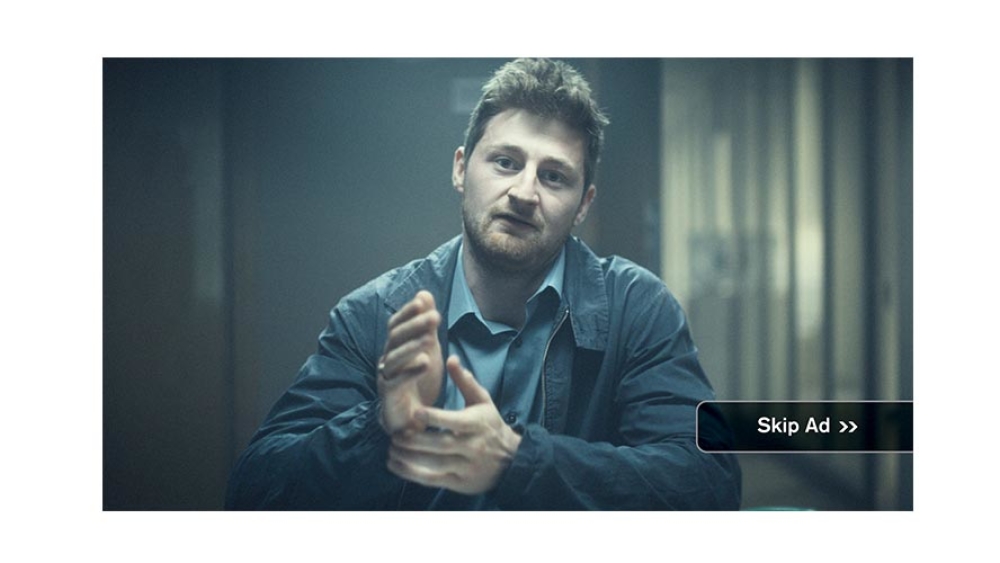2014 Silver Best Digital Performance
15 May 2015

Leo Burnett Change
'Second Chance'
Client Business in the Community (BITC)
How did the campaign make a difference? In the UK, once someone has a criminal conviction they have to declare it by ticking a box on a form whenever they apply for a job. This makes securing employment almost impossible and being unemployed makes them significantly more likely to reoffend – in turn costing the UK economy £11bn per year.
BITC is attempting tackle this by calling on UK employers to create a fair opportunity for ex-offenders by removing this tick box from initial application forms.
During the campaign, 17 companies removed the box indicating whether an applicant has a criminal record, allowing all applicants to be assessed equally. The most notable of these is Freshfields Bruckhaus Deringer LLP, who publicly cited the Second Chance online film as the trigger for deciding to ‘ban the box’.
Strategy BITC’s challenge was to get 20 new companies to put in the considerable amount of work required to ‘Ban The Box’.
The insight was that prejudice against ex-offenders is one of the last socially acceptable prejudices – it is seemingly perfectly OK to assume, or even declare, that you don’t feel comfortable being around or working with someone who has been in prison.
The strategy was to create a moment where people were confronted by their own prejudice – maybe one they didn’t even know they had – and make them fundamentally question the validity of this in themselves and in others.
BITC wanted to build something into the experience of the communication itself: to create a subverted expectation that would leave people questioning themselves.
Creativity An interactive YouTube advert subverted viewers’ expectations by using the familiar ‘skip ad’ button in an unfamiliar way. This tension between what the viewer expected and what they ultimately experienced gave the creative work cut-through and memorability, despite a distinctly un-sexy subject matter.
The film showed a young interviewee explaining that he’d recently left prison. As with all prerolls, the viewer was offered the chance to skip the content after a few seconds. But when viewers hit ‘skip’, the ex-offender tried to carry on talking. Each time the viewer hit ‘skip’ the ex-offender became more and more distressed. The film ended with him expressing disappointment that the viewer didn’t want to give an ex-offender a second chance and directing them to the BITC website. Conversely, if the viewer let the man speak freely he grew in confidence and thanked the viewer for listening.
Results This campaign has been five times as effective at opening up jobs for ex-offenders than similar efforts in the USA. 17 organisations, collectively employing 175,000 people, signed up to ban the box – no small task, requiring a major overhaul of the recruitment process.
Most notable is Freshfields Bruckhaus Deringer LLP, one of the world’s most prestigious law firms, who cited the video as their trigger: “We’d been talking about it for a while but the spark for change came when a Partner at the firm shared the film with the HR and PR teams. Seeing the issue from a different perspective encouraged everyone to take action and within weeks we’d "banned the box".
627 ex-offenders have now found employment, translating to a saving of approximately £29.5million to the UK economy.
Team Alice Hooper - Client Service Director, Sarah Kay - Account Director, Sofia Sarkar - Account Manager, Kit Altin - Planning Director, Justin Tindall - Executive Creative Director, Adam Tucker - Creative Director, Hugh Todd - Creative Director, Phillip Meyler - Creative, Darren Keff - Creative, Graeme Light - Executive TV Producer, Natalie Kozlowska - TV Producer, Dougal Wilson - Director, Peter Eichhorn - Technical Director, Camille Sims - Digital Producer, Patrick Craig - Producer, Benjamin Todd - Director of Photography, Ed Cheeseman - Editor
The campaign also triggered global media coverage, reaching an estimated 5 million people.
Please login to comment.
Comments